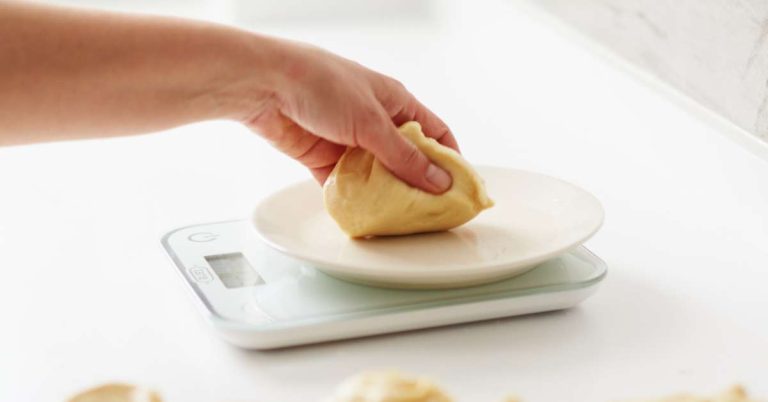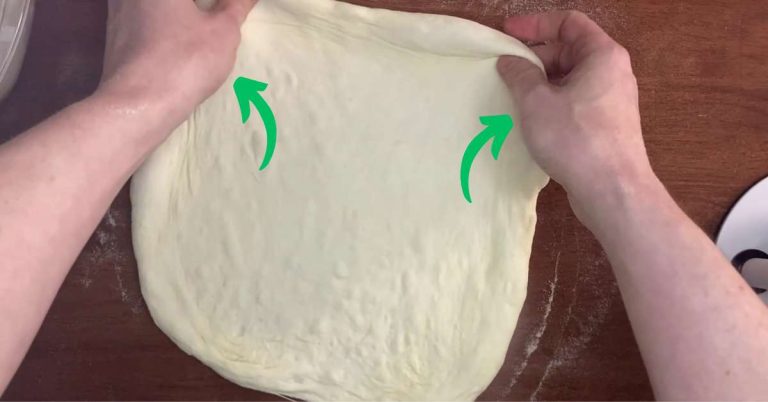Does Pizza Dough Contain Eggs?
Most homemade pizza dough usually only contains flour, water, yeast and salt, but plenty of people and restaurants have their own secret ingredients. For example, I like to add oil and honey to my pizza dough to help with baking in a home oven. But what about eggs?
Pizza dough does not usually contain eggs, especially pizza dough made in a pizzeria or restaurant. There are instances, however, where eggs are included in pizza dough recipes. In fact, a growing number of home-based pizza makers include eggs in their recipe to improve browning and crisping at lower home-oven temperatures.
But just because pizza dough with eggs is rare doesn’t mean you shouldn’t double-check first if you have an allergy. And if you’re a home-based pizza maker looking to experiment with eggs in your pizza dough, let me explain the various pros and cons of doing so.

Is Pizza Dough Egg Free?
If you’re asking this question, you probably have an egg allergy or practice a vegan lifestyle. In either case you can rest easy because the vast majority of pizzerias and restaurants do no include eggs in their pizza dough recipe.
Honestly, I’ve never heard of a professional pizza place using eggs in their recipe. Typically eggs are added to help crisping in lower temperature ovens, which isn’t something many professional establishments deal with.
Related Post: Can You Knead Pizza Dough Too Much?
Why Use Eggs In Pizza Dough?
I’ve seen many popular pages and posts online claiming that pizza dough should not contain eggs, will not be the same with eggs, and that adding eggs is something only included in cheap pizza.
This couldn’t be further from the truth.
Eggs are a common addition to many baked products because they help with browning and crisping. Buns and croissants are glazed with an egg mixture for this very purpose. When egg is included in pizza dough it helps the crust to crisp and brown in the same way.
The reason egg isn’t a typical ingredient in commercial dough is because commercial ovens are hot enough where flour, water, salt and yeast are enough to get good crisping. Home ovens are another story.
Under 500F, which is the typical range of a home oven, crisping and browning is difficult to achieve without completely drying out the crust. This is why home-oven pizza often has a pale exterior in an attempt to preserve moisture and not turn the crust into a cracker. Home oven pizza with a dark brown crust usually looks better than it tastes for this very reason.
Usually, I add honey and oil to my pizza dough to help get some nice crisping and a small amount browning on my crust. It works by taking advantage of caramelization and something called the malliard effect.
Adding a small amount of egg can achieve the same crisping effects as honey or oil without altering the taste or texture of the dough.
Antonio Esposito
I first learned about using egg in pizza dough last year while reading about the famed Italian pizza maker Antonio Esposito. Before this, I had never even considered that eggs should, or could, be used in pizza dough.
Antonio Esposito maintains that a combination of egg and lard has a huge impact on pizza dough intended for baking in a home oven. He argues that the egg helps with browning and strength due to the added protein, while the lard maintains the softness of the interior crust.
“It is imperceptible in the taste, but the consistency is magic. And you really only need a teaspoon of it for the dough.”
Antonio Esposito
So, the next time you hear someone say egg only belongs in cheap pizza you can tell them one of the foremost Italian pizza makers in the world recommends it.
Eggs In Pizza Dough – Pros & Cons
Using eggs in pizza dough comes with various pros and cons.
Pros:
- Adds protein
- Aids browning and crisping
- Gives smooth consistency to dough
- Gives gluten strength
Cons:
- Can spoil more easily due to raw egg
- Potential allergy trigger
Keto Pizza Dough Often Includes Eggs
I add this section as a counterpoint to what I’ve written above.
While it’s true that traditional flour and water pizza dough doesn’t usually include eggs, keto pizza doughs very often include eggs. My wife likes to make a keto pizza dough base that is simply a mixture egg and shredded mozzarella cheese.
But these kinds of pizza bases are barely related to the traditional recipe, and while they’re both used to make pizza I’d hardly call it a pizza dough.

Final Thoughts
Pizza dough and eggs aren’t a common combination but there are plenty of potential benefits to giving it a try at home. I plan on doing a full comparison post on this method in the near future.
Have you ever added eggs to your homemade pizza dough? Let me know in the comments below.






